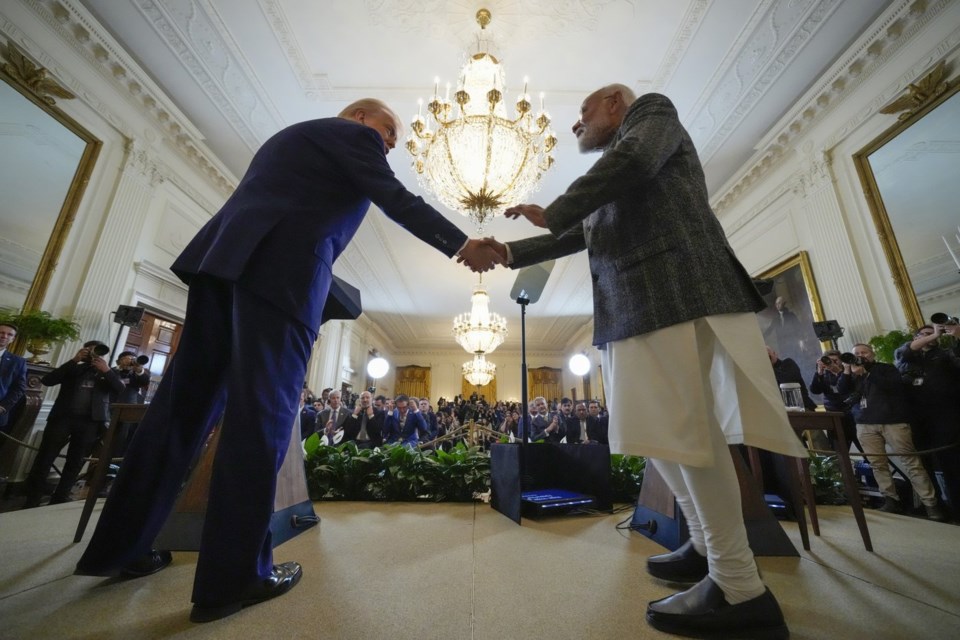The White House blocked an Associated Press journalist from covering a news conference with two major world leaders Thursday, upping the stakes in a disagreement between the news agency and the Trump administration over AP's style decision to stick with the name “Gulf of Mexico” for the body of water that the president rechristened the “Gulf of America.”
An AP reporter was prevented from entering a news conference where President Donald Trump and Indian Prime Minister Narendra Modi answered questions, effectively shutting out thousands of global news outlets that rely on the news organization.
Julie Pace, the AP's senior vice president and executive editor, called it a “deeply troubling escalation" and “a plain violation of the First Amendment” to the U.S. Constitution.
“We urge the Trump administration in the strongest terms to stop this practice,” Pace, who also wrote to Trump's chief of staff on Wednesday, said in a statement. “This is now the third day AP reporters have been barred from covering the president — first as a member of the pool, and now from a formal press conference — an incredible disservice to the billions of people who rely on The Associated Press for nonpartisan news.”
Eugene Daniels, president of the White House Correspondents’ Association, issued a statement Thursday supporting the AP.
“The White House is seeking to curtail the press freedoms enshrined in our Constitution, and has admitted publicly they are restricting access to events to punish a news outlet for not advancing the government’s preferred language," he said. "Prohibiting journalists from access because of their editorial decisions is viewpoint discrimination.”
Questioned about the actions Wednesday, White House Press Secretary Karoline Leavitt said media access decisions are up to the president and suggested that retaining references to the Gulf of Mexico constituted “lies” for which news organizations would be held accountable.
“We reserve the right to decide who gets to go into the Oval Office,” Leavitt said.
The White House had no immediate comment about Thursday's additional actions. Barring a credentialed reporter from a news conference with leaders of two of the world's most influential nations represents a step beyond preventing access to an Oval Office event.
“This is a textbook violation of not only the First Amendment, but the president’s own executive order on freedom of speech and ending federal censorship," Daniels said.
AP reporters were first prevented from accessing Oval Office events on Tuesday after being warned it would happen. The policy continued for events Wednesday and Thursday in the office and other locations.
Trump moved quickly upon taking office to rename two key landmarks, ordering the name of the mountain known as Denali changed back to its old moniker of Mt. McKinley and renaming the Gulf of Mexico the Gulf of America. AP switched its style for the mountain because, being entirely inside the United States, it was subject to presidential authority. But the agency decided to stick with the Gulf of Mexico for a body that lies partially outside U.S. territory — while noting Trump's move.
The agency's decision matters because many writers and publications follow the guidelines of the AP Stylebook.
Both Google Maps and Apple Maps have switched to the term Gulf of America either entirely or in part. On Thursday, Mexico's president said she was considering suing Google over the move.
The Associated Press



